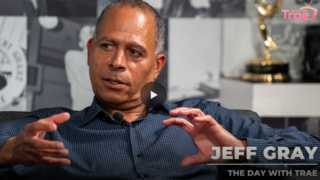
Key questions that can save you millions
A friend of mine, Jodi, remodeled her bathroom after a leak caused major damage.
Wanting to save money, she bought fixtures and cabinets from one of the big-box stores, tile and flooring from another. She hired a bunch of “guys” to install the tile, plumbing, and cabinets. She hired a gal from the paint store to develop a palette that would match the tile and the cabinet color. She painted the bathroom herself. She had her husband do the floor.
Over a YEAR later, it’s done. Well, kinda. Some tile has already chipped, her shower nozzle doesn’t work properly, and her towel rack keeps falling down. She told me it was a “nightmare,” and she wished that she had someone to coordinate the entire thing for her. I didn’t even ask her how much money she really saved, as I doubt, what with all of the time off work in order to supervise, that there were any savings.
Twelve months, for one stinking remodel of a master bath in a subdivision!
Imagine ordering toilets, showerheads and bath mats for 150 rooms or more; making sure that electrical outlets, Internet hookups and hairdryers not only work, but are installed right-side up and level. What about the time it takes to coordinate the scheduling of several contractors — and the mess when one is delayed? And just how do you keep track of the volume of the warranties? Let’s add in one more component — the impact on guests and revenue.
Recently, I had the chance to chat with Raving Partner, John Stewart. Thinking of Jodi’s experience, I asked:
CHRIS: How do you manage a project like this on a commercial scale? How do you keep track of all these contractors? Who comes first – an architect or a contractor?
JOHN: To your question, who comes first, the answer would be “neither.” The answer to how do you manage a project that’s of a bigger commercial size — is to hire someone who has the knowledge and experience, to run and oversee the complete project for you.
Where projects get upside-down is when an architect or a contractor is hired before the following questions are answered:
- Have we done thorough research? Have we conducted market studies, strategic plans, and gathered customer feedback?
- What do we need in order to develop a solid financial and construction plan? Are we prepared with a preconstruction package?
- Can we make money from this project? What is the return on our investment?
As many companies find out soon enough, relying on individually contracted parties to provide the answers to those questions above is not the way to go. More often than not you will find this expertise is not in their wheelhouse, they’re not budgeting or finance experts. They are not guest research, feasibility or procurement experts. Who is? An owner’s representative can be the primary source for everything that you’ll need for your project.
CHRIS: How can hiring someone who would do all that, be less expensive than doing it yourself? What exactly does an owner’s representative do and how?
JOHN: Using an owner’s representative can not only SAVE you money, but it can ensure that your job gets done on budget and on time. A true owner’s representative is an expert extension of your team.
CHRIS: Okay, give me examples of how an owner’s representative can save money for a [gaming] organization.
JOHN: Sure, Chris. Not everyone works exactly like my company, Encompass, but I can tell you how we operate. Let’s summarize how an owner’s representative can save you money (over and above their fees):
1. No need for more payroll – Some companies hire permanent staff to not only get the project off the ground, but for ongoing maintenance capital and procurement. In addition, they might assign the project to an in-house senior executive who may have some knowledge of building, but this takes them away from their more important job, running the casino or maintaining the facility, and which they’re better at. If you use an owner’s representative, you don’t need to add on employees to your payroll or distract executives away from the gaming or other operations.
2. You can take that to the bank – Many companies jump directly to an architect, as they believe that everything starts with detailed drawing. While these detailed drawings play a vital role in the project, in fact, what you need is a “preconstruction package” to approach board members, tribal councils, and financial institutions. It answers the question “is this project viable” and contains just enough information, including basic drawings, estimates, and feasibility studies. How can an owner’s rep save you money? You don’t need to start with full-scale drawings like you would get beginning the process with an architect. And if you have to go back to the “drawing board” after the fact, your changes can cost you thousands of dollars. Make sure that you’re on the right track before you hire your architect.
3. Finding the right financing – Will you be financing through the investment community or through a bank? If you think in terms of percentages and points, an owner’s representative can find you the best rate for your financing. A good owner’s representative has helped clients explore both options, ultimately saving them thousands.
4. Contract negotiation – If you look at most consultant contracts, they’ll list additional subcontractors to complete the job, along with fees that are embedded in the master fees. There also might be duplication of services between the architect and the contractor. There’s also the part about not being responsible for cost overruns. An owner’s representative knows exactly what should be in any contract to protect you, from additional fees, redundant services, and overcharges.
5. Procurement – Sheets, commercial-grade digital TVs, seating, glassware, you name it; who has the time to find the best quality for the best price? Some owner’s representatives, like Encompass, will procure everything that you need without a commission fee on top of each item. You might hire an owner’s representative just for procurement; e.g., you’re doing a soft remodel of your hotel rooms.
Chris, you initially asked, how can hiring someone who would do all that, be less expensive than doing it yourself? In this case, I can speak for Encompass. We, as your owner’s representative, only charge for our time spent on your project. No mark-ups on anything. Just in contract negotiations alone, casinos can realize a tremendous savings over and above our fees.
Before you break ground remember …
Are you planning on a remodel, expansion or new build? Whether it’s Encompass or another owner’s rep, before any plans are drawn or ground is broken, sit down and make sure that you have an expert team in place.







